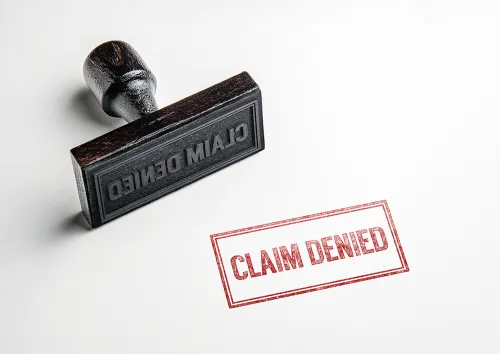Applied Behavior Analysis (ABA) therapy is a highly effective treatment for individuals with autism spectrum disorders, focusing on behavior modification and skill development. However, the process of billing for ABA services can be complex, and one common challenge faced by ABA providers is dealing with rejected claims. Let’s delve into what rejected claims in ABA billing are and some common reasons for their occurrence.

What Are Rejected Claims?
Rejected claims refer to insurance claims submitted by ABA providers for reimbursement but are not processed successfully by the insurance company. When a claim is rejected, it means that the insurer has identified issues that prevent it from being paid, and it is sent back to the provider for correction or resubmission.
Common Reasons for Rejected Claims in ABA Billing:
Incomplete or Inaccurate Information: ABA claims require detailed and accurate information, including patient demographics, procedure codes, diagnosis codes, and service dates. Any missing or incorrect data can lead to a claim rejection.
Credentialing Issues: If ABA providers or therapists are not properly credentialed with the patient’s insurance plan, claims may be rejected. Ensuring that all providers are in-network and credentialed is essential.
Lack of Prior Authorization: Some insurance plans require prior authorization for ABA services. Failing to obtain this authorization before providing treatment can result in claim rejections.
Timely Filing Limits: Insurance companies typically have strict deadlines for claim submission. If a claim is submitted after the specified timeframe, it may be rejected. ABA providers must be aware of and adhere to these deadlines.
Billing Errors: Errors in the billing process, such as using incorrect codes, not following the insurer’s specific billing guidelines, or improper documentation, can lead to claim rejections.
Policy Exclusions: Certain insurance plans may have exclusions or limitations regarding ABA coverage. Providers should verify the patient’s coverage and ensure that the services rendered are covered by the policy.
Coordination of Benefits (COB) Issues: When a patient has multiple insurance policies, COB issues can arise. The primary insurance should be billed first, followed by the secondary insurance. Failing to follow the correct order can result in claim rejections.
Dealing with Rejected Claims:
Review and Correct: When a claim is rejected, ABA providers should carefully review the rejection notice from the insurer. Identify the reason for rejection and make necessary corrections, ensuring all required information is complete and accurate.
Resubmit Promptly: Timeliness is crucial. Once the issue is corrected, resubmit the claim promptly, following the insurer’s guidelines and deadlines.
Communicate with the Insurance Company: If the reason for rejection is unclear, or if there are disputes, it’s essential to communicate with the insurance company’s billing department for clarification and resolution.
Documentation: Maintain thorough and accurate documentation of all ABA services provided. Clear and detailed records can be invaluable in resolving claim rejections.
